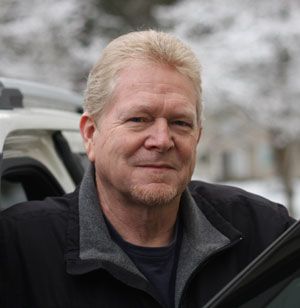Blowing your horn
I reprinted a Washington law (RCW 46.61.245) in a recent column concerning the mix of motor vehicles, pedestrians and bicyclists on our roadways. A segment of that code requires that drivers, “…shall exercise due care to avoid colliding with any pedestrian upon any roadway and shall give warning by sounding the horn when necessary.”
Reader S.R. has some reservations about that recommendation and wrote, “The comment on sounding the horn needs a bit more explanation. I’ve had people right abreast of a cyclist sound a horn and scare the dickens out of them. I’m aware of at least one fatality as the cyclist was startled so much that they fell into the path of the vehicle and was killed. Would you look into this and discuss it?”
To clarify: My column “comment” about sounding a horn was merely a direct quote/reprint of the Washington law as it is written. Also, the law only makes reference to pedestrians, although its sentiment undoubtedly applies to bicycles too. The law is in place to specify drivers’ obligations to use proper care and tools-at-hand (horn, for example) to make their presence known to “lesser” entities upon the roadways.
I agree that many drivers lack the finesse to express varying degrees of urgency through judicious use of vehicle horns. When a driver wishes to simply “announce” his or her presence, a light tap on the horn button so as to generate a non-threatening toot or two would be preferable. A full or extended depression of that sounding device should be reserved for situations of imminent danger.
A major blast could indeed alarm a pedestrian or bicyclist, but it’s all a matter of degrees for both parties. Some drivers have no gentle touch with their horns, and individual pedestrians and cyclists may have varying sensitivity to such warnings. Other drivers blast their horns loudly and angrily to purposely punish others for perceived driving errors.
Use or misuse of horns and various reactions to same will endure, but the law (46.61.245) as stated simply reminds drivers of their horns, urging use of them when necessary to warn pedestrians who may be unaware of a vehicle’s presence or proximity.
I believe it’s also incumbent upon pedestrians and bicyclists who are using the roads to be aware of where vehicles are, or are not. With that mindset, a horn warning, regardless of intensity, should induce them to move toward where the vehicles are not, rather than where they are. Young children or those who are otherwise unsuited to deal with automobile traffic should not venture onto busy roadways on bicycles or afoot.
However, since those who are lacking in ability or awareness DO venture onto the roadways, the law (46.61.245) specifies some of the duties/responsibilities of motor vehicle operators toward them. When an injury or fatality case makes it to court, such laws are used to help determine if the involved vehicle operator has reasonably fulfilled his or her obligations to the pedestrian.
Horns are required safety equipment for motor vehicles. Logically following, legal and proper use of them is reserved for purposes related to safety. Though errant horn use is not regularly enforced, honking at your buddy or someone you find physically attractive is not legal or proper. As implied earlier, neither is honking at a driver simply because you are angry with them for pulling out in front of you or cutting you off.
If you toot a horn to dissuade a driver who is about to cut you off or drift into your lane from doing so, you are rightfully honking. If you give a short honk to get a driver’s attention at a green light they are ignoring, that’s okay too. But if you are solidly sounding a horn to roust your date from the house or to belittle another driver who is pulled over by the police, you are wrongfully honking.
Even on private property, where rules of the road do not generally apply, unfounded horn use may not be illegal, but it’s still not sensible. In the interest of safety, as with all driving actions, please employ common sense when considering blowing your horn.
Readers may contact Bill Love via email at precisiondriving@spokesman.com
